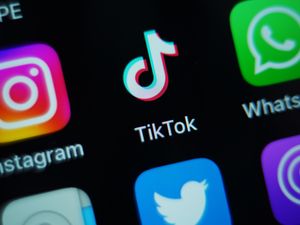Google axes diversity hiring targets as it reviews DEI programmes
The tech giant has become the latest in a growing number of US firms to row back on diversity, equity and inclusion initiatives.

Google has become the latest in a growing number of US firms to row back on diversity equity and inclusion (DEI) initiatives as it axes hiring targets and reviews programmes.
The tech giant has followed firms such as Amazon, Meta and McDonald’s as corporate America continues to shift towards more conservative social and political stances in response to the start of Donald Trump’s presidency.
In his first weeks as president, Mr Trump has signed a flurry of executive orders relating to DEI, including dialling back transgender protections and ending government programmes.
In its annual report released this week, Google’s parent company Alphabet omitted a sentence that had been included in its previous few reports, stating that it was “committed to making diversity, equity, and inclusion part of everything we do and to growing a workforce that is representative of the users we serve”.
Meanwhile, a company email sent to staff said the firm would no longer have the “aspirational goals” that it previously set to improve representation, the Wall Street Journal first reported.
A Google spokesperson said: “We’re committed to creating a workplace where all our employees can succeed and have equal opportunities, and over the last year we’ve been reviewing our programmes designed to help us get there.
“We’ve updated our 10-k language to reflect this, and as a federal contractor, our teams are also evaluating changes required following recent court decisions and executive orders on this topic.”
It remains unclear how the changes will affect the UK’s workforce but companies must still comply with the country’s equality laws.
In a policy direction that contrasts with the US, the Labour Government is planning to strengthen DEI protections, including introducing mandatory ethnicity pay gap reporting and strengthening employment rights.

Rachel Curley, deputy general secretary of leading tech union Prospect, said: “Tech companies like Google, whose US owners are changing employment practices to fit with the new Trump administration, need to be aware that employment law operates very differently in the UK. There are also differing appetites for measures that actively encourage diversity and equality.
“Prospect will be monitoring developments at Google and other UK employers to make sure our members’ rights are protected.
“Employees who are worried about the direction their employer is taking on these and other issues should join Prospect so that collectively, their concerns can carry more weight.”
It comes as women, black and Latino people remain as underrepresented in the tech industry, both globally and in the UK.
Google’s 2024 diversity report said women made up 34.1% of Google employees globally in 2024, up from 30.6% in 2014.
The data also showed that 5.7% of its US employees were black and 7.5% were Latino, up from 2.4% and 4.5% respectively in 2014.
The proportion of Asian employees increased from 31.5% to 45.6% over the decade but decreased for white workers, from 64.5% to 45.3%.
Chief diversity officer Melonie Parker wrote: “As we look back at our efforts across 2023, we’re proud of the progress we’ve made, and we’re not stopping now.
“Leading with learnings from across our geographies, we’re reinforcing our most impactful efforts in how we support our people, develop our technology, and serve the communities we call home.”
The DEI row back at Google comes after it removed a pledge from its artificial intelligence (AI) principles that said the company would not use the technology to develop weapons.
The technology giant has rewritten the principles that guide its development and use of AI – which are published online – but a section pledging not to develop tech “that cause or are likely to cause harm” has now been scrapped.





